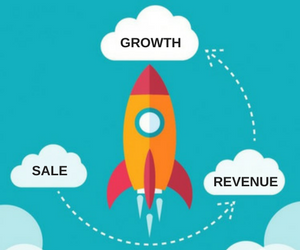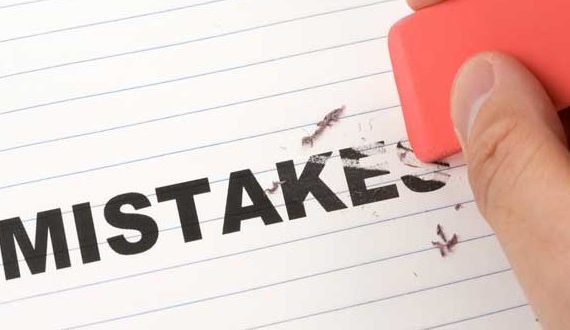Developers are the main life line for any web project. Whether you are building a project from scratch or tweaking it up a bit, developers make all the difference. You need to choose whom you hire wisely, so that your project is actualized with minimum hiccups.
It’s usually easy to spot someone who isn’t a good match for your business or project requirements, but separating the good developers from the great—and ultimately hiring them for your project—takes a careful selection procedure.
The interview stands as the single most important step in the selection process. Their CV should explain the basics: a brief introduction, how their experience fits your project, and an overview of how they’ll approach the work. But it’s the interview that brings that introduction to the next level. It’s a chance for both of you to speak candidly and see how well you’re able to communicate; you can learn as much from what someone says as how they say it.
Now that you started to get my point, let’s talk about what you should be asking in order to find out if they are worth your money or not –
1. What You Think Makes A Good Or Bad Code?
Ask this question at the begging of the interview to set the tone. The question is simple yet effective. It will give an idea about the thought process the person you are interviewing.
Answers you should receive –
A. Code should be focused – Each class, method or any other entity should remain undisturbed.
B. The language you wrote your code with should look like it was made for that problem. (Basically no specific language makes your program appear attractive rather a good programmer makes all the difference)
C. Code shouldn’t be redundant – Codes should be correlated with each other.
D. Code should be easy to interpret and edit.
E. Can be extended by any other developer –so that another developer can make the changes if needed in the future.
F. It should have minimal dependencies – The more the dependencies the harder it will be for you to maintain or change it along the way.
G. Smaller is better – Code should be minimal. Both classes and methods should be short, preferably just a few lines of code. It should be well divided, so that person reading it won’t get lost.
H. It should be expressive- Codes shouldn’t be misleading rather it should express the full idea beside it.
I. It should have unit and acceptance tests –Good code should have the testability so that bugs can be fixed and improved all together.
2. Can I See Your Portfolio Or Samples Of Your Work?
An experienced professional should be able to share samples of their work or tell you about projects they’ve worked on. Use your best judgment about this based on how they’re presenting themselves. Keep in mind that some types of work aren’t always public or permitted to share, so someone with years of experience may not have a big portfolio if they’ve recently made the move to self-employment.
- Things to listen for:
Quality. Does their work represent the skill level and the kind of attention to detail you’re looking for?
- Follow-up question:
“What was your approach to this project?” This question will help give you more insight into how they collaborated with others, addressed the client’s needs, met challenges, or exceeded expectations.
3. In Your Opinion, What Are The Three Core Skills Needed For This Project? (Give A Briefing About Your Project)
If you’ve written a good hiring post, and if they’ve responded with a thoughtful proposal, these core skills may have already been identified.
- Things to listen for:
Understanding: do they really understand your project? Core skills aren’t necessarily technical skills, and it’s possible a freelancer will list skills that aren’t reflected in the description or the proposal. However, their response should show a firm understanding of your project or issues they may encounter.
- Follow-up question:
“Of the three, which would you describe as your strongest skill and weakest?”
4. How Do You Keep Yourself Up-to-date With Current Trends In Programming Wrld?
Often recruiters overlook these types of questions; which is a mistake because you want your website or application to look and feel trendy. So if the people you are hiring don’t know what the trend is and what is changing in the field of web development, they might do a critical error which will ultimately reduce your scalability, will mess up your SEO and you will end up with a badly finished project.
Some people tend to give made up answers for these sort questions. You have to be one step ahead of them and try to go as deep as possible to find out if they are giving the genuine answers or not. Ask about their favorite book about programming, what type of blog or articles they tend to follow on daily basis. Try to relate this question with their preference and find out what is typical for them. If you get a positive response from this question you certainly can say that they are motivated enough to learn about new ideas and definitely have a tendency to grow their knowledge.
5. What Changes You Will Make In This Website?
This question is actually helpful if you have an existing website. If you don’t have one, show them a different website that you have access to. Ask them what changes they will make that can make that website better and more responsive. Furthermore what is wrong with current layout? Sometimes they will give you overwhelming answers and sometimes under whelming. But nonetheless you will get an idea about the understanding level of that programmer.
6. Will You Be Able To Meet This Timeline?
If you have a tight timeline, you need to know right away whether they have a problem working according to your schedule or not. Most developers manage multiple projects at the same time; this doesn’t mean they aren’t the right fit for your project, but it does mean that they need to be able to balance your project against the needs of their other clients. By asking this question you would get an idea about their scheduling.
Things to listen for:
Project management skills: are they confident about their ability to meet your milestones? What’s their approach towards juggling multiple projects?
Follow-up question:
“Is this timeline realistic?” An experienced developer should know whether you’ve allocated enough time, missed any key steps, or aren’t leaving enough time for testing the system.
Key Takeaways:
Hiring a developer is not easy. If you end up hiring the wrong person, it can take a while before you find out that your whole project has become a mess. Sometimes the damage is irreversible. In an ideal world, we could invest a lot more time than the typical short interview to know the candidate, but we rarely have that luxury.
These tips should help to get you on the right track while separating the inefficient programmer from the good ones. Nonetheless, even with every precaution and after asking all the right questions you can end up hiring a wrong person for the job. If you want to avoid that sort of dilemma and don’t want to compromise the quality of work, try to find a good web development company and make your life easier.
After all, you have a business to run.










